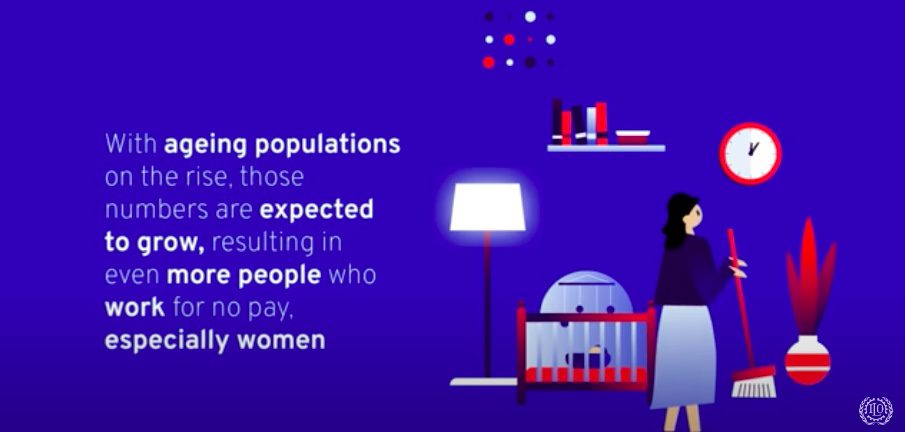
Why measuring unpaid domestic and care work matters, and how we can help
Until recently, the value of unpaid domestic and care work (UDCW) and its economic and social impact was often excluded from budget planning and national policy agendas. Today, this is finally changing. In fact, the measurement of UDCW is now considered an essential component of official statistics on work, employment, and labour under-utilisation as well as a critical indicator of gender-based inequalities.
To meet the growing demand for data on UDCW, the ILO’s Statistical Standards and Methods Unit (SSMU) has developed and tested a series of practical, light time-use measurement tools for attachment to Labour Force Surveys (LFS). These new tools build on international best practice and extensive field testing with implementation partners including NSOs and independent research institutes.
Shedding light on the world of unpaid domestic and care work
Every day, more than 16 billion hours are devoted to unpaid domestic and care work around the world. As global populations age, these figures are set to rise, with a disproportionate impact on women. Quantifying UDCW is critical to understanding labour under-utilisation, employment trends, and gender-based inequalities.
The new LFS “light time-use modules,” provide an innovative tool to support efficient and comprehensive data collection on UDCW, helping us move a step closer to a more equitable world of work and social justice for all.
